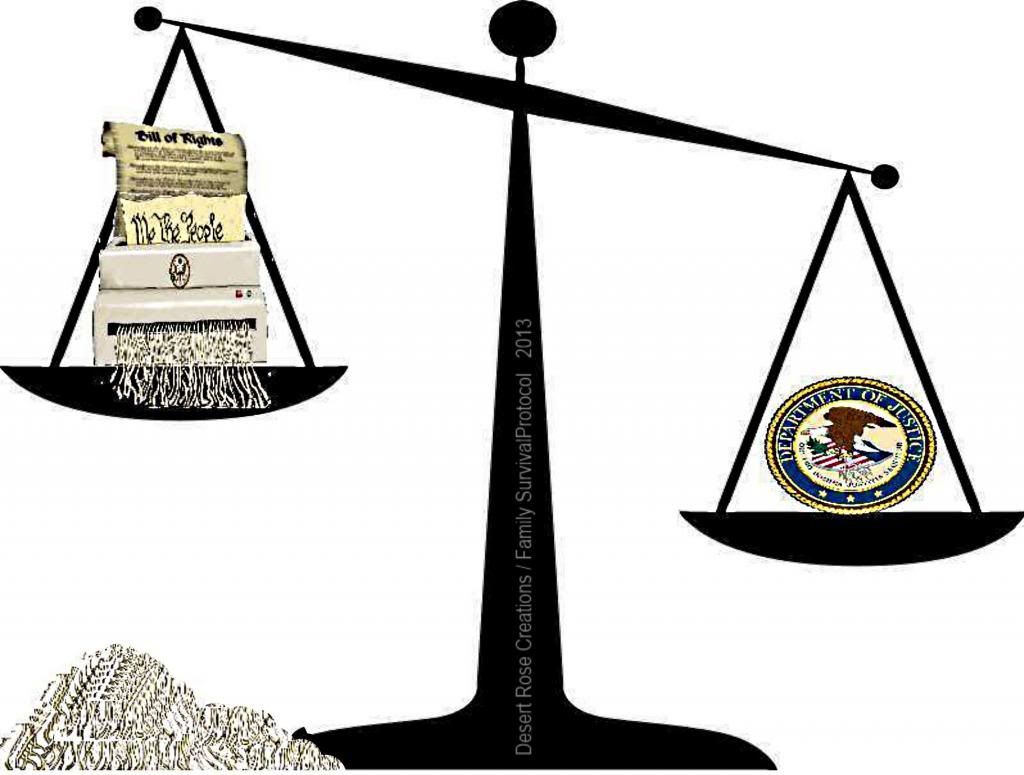
********************************************************************
Kafka’s America: Secret Courts, Secret Laws, and Total Surveillance
By John W. WhiteheadJuly 22, 2013
“Logic may indeed be unshakeable, but it cannot withstand a man who is determined to live. Where was the judge he had never seen? Where was the High Court he had never reached? He raised his hands and spread out all his fingers. But the hands of one of the men closed round his throat, just as the other drove the knife deep into his heart and turned it twice.” – Franz Kafka, The TrialIn a bizarre and ludicrous attempt at “transparency,” the Obama administration has announced that it asked a secret court to approve a secret order to allow the government to keep spying on millions of Americans, and the secret court has granted its request.
Late on Friday, July 19, 2013, the Foreign Intelligence Surveillance Court (FISC)—a secret court which operates out of an undisclosed federal building in Washington, DC—quietly renewed an order from the National Security Agency to have Verizon Communications hand over hundreds of millions of Americans’ telephone records to government officials. In so doing, the government has doubled down on the numerous spying programs currently aimed at the American people, some of which were exposed by whistleblower Edward Snowden, who temporarily pulled back the veil on the government’s gigantic spying apparatus.
As a sign of just how disconnected and out-of-touch with reality those in the Beltway are, National Intelligence Director James Clapper actually suggested that declassifying and publicly disclosing the government application was a show of good faith by the government. The order, submitted by the federal government and approved by the FISC, is set to expire every three months and is re-approved without fail. This is the bizarre logic which now defines American governance: it doesn’t matter if we spy on you without your consent, so long as you know that we’re doing it, and so long as we give the impression that there is a process by which a court reviews the order.
Ironically, the seeds for this brave new world were planted in an attempt to reform the ludicrous mantra of the Nixon administration that “if the president does it, it’s not illegal.” In the aftermath of the Watergate incident, the Senate held meetings under the Church Committee in order to determine exactly what sorts of illicit activities the American intelligence apparatus was engaged in under the direction of Nixon, and how future violations of the law could be stopped. The result was the passage of the Foreign Intelligence Surveillance Acts (FISA), and the creation of the FISC, which was supposed to oversee and correct how intelligence information is collated.
Fast forward to the present day, and what we see is that the alleged solution to the problem of government entities engaging in unjustified and illegal surveillance has instead become the main perpetrator of such activities.
When FISA was passed in 1978, it provided for a court of seven federal judges from seven different federal circuits who would serve for seven years. The judges on the FISC are appointed by the Chief Justice of the Supreme Court and may only serve once. The USA PATRIOT Act, however, increased the number of judges to 11, and altered the standards under which the government could engage in surveillance.
Thus, what was ostensibly designed as a mechanism to protect the American people from unwarranted government surveillance became instead a bureaucratic mechanism to rubber stamp government applications for surveillance. Indeed, the Court is structured such that applications for surveillance are rarely ever denied.
If a judge were to reject an application, for example, that judge would have to immediately write a report detailing every reason for the rejection, then transmit the report to a 3-person court of review. If that court finds that the application was properly denied, it must also write a report, which is then subject to a writ of certiorari by the Supreme Court. However, no reviews are necessary if an application is granted. This bias towards approving applications has played out predictably over the history of the court: out of 33,949 total applications, only 11 have been denied. Out of those 11, at least four were granted partial warrants later.
Deference to government requests for surveillance has only been exacerbated since 9/11. Before the PATRIOT Act was passed, collection of foreign intelligence information had to be the sole or primary purpose of the surveillance. However, after the PATRIOT Act, collecting foreign intelligence information merely had to be a “significant” part of the surveillance. The PATRIOT Act also allowed for a “roving wiretap,” which meant that government agents no longer had to designate a particular number or line to be bugged. This has led to the government forcing telephone and internet providers – some willingly and some not so willingly – to hand over vast troves of information on American communications.
Read More Here
Related articles












No comments:
Post a Comment
Hello and thank you for visiting my blog. Please share your thoughts and leave a comment :)